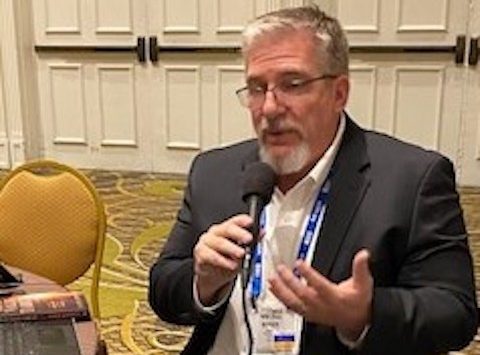
March 2022 Learning How Journalists Think
Most of the Christian journalists who interview authors have a specific show, podcast, or subject area for which they are responsible for their organization. Those shows have some parameters on the content that works for their theme or audience. Smart show hosts do a lot of planning ahead of time.
Two examples and some lessons about this for today.
While I was at NRB, someone stopped by the booth to say she was connecting with a number of us book publicists to request interview ideas for some upcoming shows. Then she spent five minutes (which was an impressive amount of time under the circumstances) obviously running through a mental list of upcoming series her show was going to be doing and the types of guests she thought would be a fit. In a conversation like this, it’s part of my job to brainstorm a bit as well, making suggestions, and since I have some understanding of what she’s doing, I seek to give back to her with new ideas.
Then in the last week, I heard from someone who asked me about an author I had pitched to him well over a year ago. He may have even met the author in person, and the author is very impressive and memorable. Now the journalist has changed jobs, has new responsibilities, and was clearly reaching out to a lot of folks to prime the pump so to speak with story ideas for his big new job.
The takeaways for pitching to journalists are these.
One, a reminder that not every media outlet is a fit for your book.
Spend some time checking out the media outlet and don’t pitch them your book on parenting a preschooler if their topic is men and cars. [And yes, there really is a Christian radio show about that!] But as you are reviewing, think creatively about how your book might fit their topic and provide a fresh angle.
And don’t get discouraged when someone doesn’t respond to your pitch. You don’t know what they are really doing with the show. They may appear to be covering something that’s a perfect fit for your topic but actually be in the middle of a pivot to another emphasis.
Two, don’t be too quick to give up hope. Not long before the email I received inquiring about the year-ago client, I heard a colleague talk about how sometimes interviews can take one or two years to come to fruition. That isn’t the way any of us like to have it go, and it’s far from the norm, but it is sweet when it happens.
And it makes the point that in the planning these journalists are doing, the smart ones hold onto notes about people who they might want to interview later or in another context because they have to keep coming up with fresh story ideas over and over again.
I consider it part of my job to serve them by suggesting new story ideas and new authors, but equally also not waste their time by suggesting ones that I know are not a fit for them.
One more thought related to that interview inquiry that comes much later than you thought — as a corollary to that, keep in mind what you are doing with promoting your books and how you will look when people check you out. It’s OK if you’ve decided you are done with a book and want to move on.
But if you still want to sell the book, you have to keep promoting it, whatever that means for your book. Do social media posts, show up at appropriate book events and post about that, maybe buy some ads, and keep your website and other pages up to date, at least every few months. Maybe even use this idea of needing to keep new things happening to nudge those people who still haven’t written the reviews they promised ages ago to do, because you still need them.
[Pictured above is Roger Marsh, host of The Bottom Line radio show at LA’s KBRITE radio, interviewing a Buoyancy author at NRB.}



No Comments